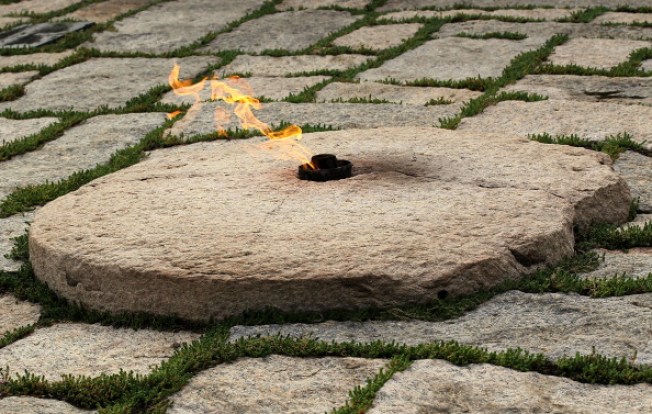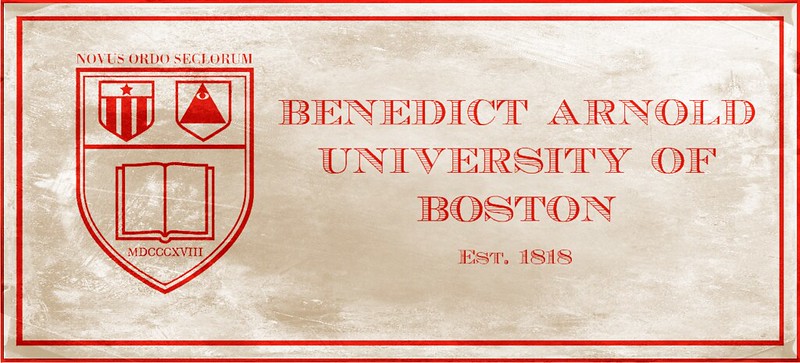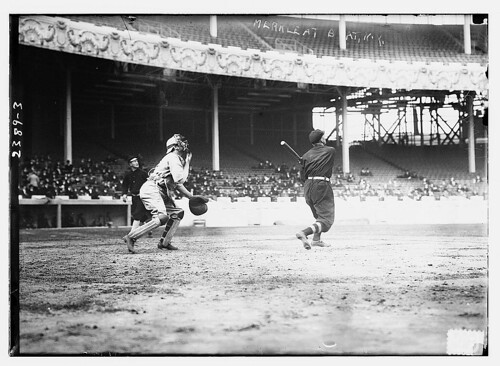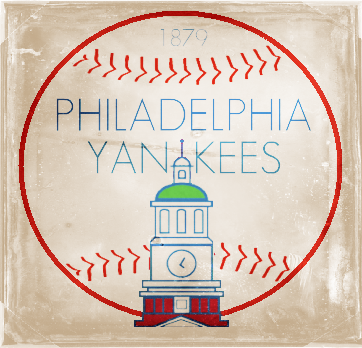A FRESH FACE:
THE RISE OF MUSSOLINI
The dramatic and fateful year of 1920 had arrived. All over the world, chaos and tumult ruled as human civilization still struggled to come to terms with the outcome of the Great World War. The 20th century had brought as much change as the American and French Revolutions had over a century prior. As in those bloody conflicts, nations rose and fell, in triumph and carnage. Millions had died and millions were still displaced, diseased, and starving. The Russian Civil War was still raging, as was the vitriolic and nightmarish three-way conflict for the soul of Germania. Italy, now unified under King Carlo II after Northern Italy's Massimiliano died without a surviving heir, had tenaciously fought and pushed Grand Serbia out of Dalmatia during the war, but at great expense in men and material. The people were impoverished and devastated by the Plague and there were rumors of Illuminist cells within the country plotting revolution and murder of the royal family. In all this fog of uncertainty, most men would tremble, simply trying to feed their families and survive. Mario Salvatore Mussolini was not such a man, as the entire world would soon find out.
Mario was born July 29, 1883, in the small town of Predappio, to Alessandro Mussolini, a blacksmith, and his devout Catholic wife Rosa Maltoni. His father was a political radical and was well-versed in the writings of Nietzsche, Knigge, and Beutel, and was an extremely progressive man, seeing the monarchy as a blight upon civilization and a glaring middle-finger of sorts to the hard work and sacrifices of the Enlightenment. He told young Mario that, "Only when the Bonapartists and royalists are driven out of Italia, and only when the peninsula flies one banner, can true social justice come to our homeland." Meanwhile, his mother was absolutely and vehemently opposed to this. When Mario was ten years old, in 1893, his parents finally filed for a divorce when Rosa alleged that Alessandro was cheating on her with another woman. Mario, up to this time, loved accompanying his father to the pub and learning from the leftist patrons there, but now he viewed his father as a worthless piece of scum. Mario loved his mother more than anything else in the world, and his father's sins convinced him that leftist ideologies were pure folly and of the devil. His formerly weak, childish faith in the Church strengthened into rock-hard conviction after he moved to Rome with his mother in the summer of 1894. There he would become a gopher boy for the religious leaders at the Vatican and would eventually become chief bell ringer of Rome.
By the time, Pope Sixtus VI, formerly known as Lucien Bonaparte, was already well advanced in years, his hair an iron gray and his eyes losing clarity. By the time of the turn of the century, the Holy Father would become practically sightless, earning him the nickname of "Blind Boney," or the "Blind Pope." He essentially retired at this point, content to serve out his term by just preserving the status quo. In 1899, at just 16, Mario was assigned to the personal detail of His Holiness Sixtus VI and would become one of the Blind Pope's only persistent companions. He earned the Pope's trust and was constantly promoted to better and better jobs within the Holy See. After a while, Mario was offered a chance to study at the University of Rome, where he would major in Catholic Philosophy with a minor in mysticism and esoteric philosophy, becoming very interested in the ancient religious sect known as the Cathars, which had been eradicated by Pope Innocent III's 1209 Albigensian Crusade. These studies would only wet Mario's appetite for esoteric knowledge and he began to obsess over studies of sacred objects such as the Spear of Destiny and the Holy Grail, constantly reading book after book on the subjects. He would receive his Master of Divinity in 1906, at the very young age of 23, reflecting his high intelligence and desire to constantly better himself. All this time, he would send much of his meager earnings to his mother Rosa. Rosa would frequently boast of her son, the "Pope's Apprentice," and she would always insist that one day, her boy Mario would be Pope himself, much to the amusement of the other women at the market.

Mural depicting the excommunication and eradication of the Cathars
The Butchering of the Cathars by the Inquisition (1244)
In 1907, at the age of 24, Mario Mussolini was asked to become a Deacon at the Church of Predappio, which he gladly accepted. As he boarded his train to go back to his old hometown, he told his proud mother, "I shall be back, mama. I shall march back to Roma and make you proud. You just wait and see." Six uneventful months rolled by in Predappio, spiced up only by the rising tide of war, which was widely expected to come at any time even by this point. He also delved deeper into the studies of the mysticism and esoteric knowledge. He befriended a local friar, Brother Lucius, who was also quite interested in the darker side of spirituality, and together they spent many nights pouring over ancient manuscripts while sipping absinthe from little wooden cups in the centuries-old basement of the Prepappio Cathedral, a humble building far less grand than anything in Rome. More and more, however, Deacon Mussolini desired to quest for the Holy Grail, the mythical cup supposedly used to catch Jesus' blood at the crucifixion. After months of begging the Church in Rome to sponsor such an excursion, his cries for help finally reached the ears of Sixtus, who agreed to fund Mario for a year-long expedition. Sixtus' message to Mario told him that the Pope didn't believe such a quest would be fruitful, but that it would be a proper boon to a young man who had been so loyal and steadfast to the Pope.
This was the beginning of Mario becoming the head of the Church's newly-founded relic department, operating under his direct command. However, this was not some all-powerful entity with limitless funds from Rome, but rather an ad-hoc team of oddballs and historians, numbering about fifteen, with a tightbelted operational fund. Nevertheless, Mario was determined to make it work. In 1909, now a bishop-in-training, Mussolini left Italy for Europan France, to seek out the ancient ruins of the Cathar sect. On July 18, Mussolini and his team arrived in the region of Occitania, the southernmost region of France which divides it from Spain along the mountains and valleys of the Basque Country. This, at long last, was the realm of the ancient Cathars, the apostate sect which had been so brutally slaughtered by knights loyal to the Church so many centuries before. They arrived at the Chateau de Montsegur on July 31. The fortress had been built in the 17th century on top of the ruins of the medieval Cathar stronghold, and it had seen action both during the French Revolution, where it had been the site of a Jacobin militia, and served as a barracks during the French war against Spain in the tail-end of Napoleon the Great's military career. Now, however, the slate-gray stone keep stood abandoned on the bald cliff, a raggedy old French Imperial banner still hung over the open gateway, almost bleaches pure-white by the sun and the silk strands rotting and falling away. Mussolini and his team moved in quickly, setting up a basecamp before dawn.
For the next several weeks, Mario and his team inspected every aspect of the fort, constantly alert for any possible clues as the Grail's whereabouts. The chief aid for the young Bishop was Alistair Bernard, a notable French-born archaeologist and also a keen mind for the occult and the unusual. Bernard was a swarthy man of some sixty years who had traveled the world, visiting countless Europan colonies and many different nations in search of treasures and ruins. In 1906, he had discovered the ancient city of Troy, formerly thought to be a myth of the Iliad, but the devastating Greek War of Succession had driven him and his crew out of Greece. He had learned of the grail expedition and was determined that such a discovering of equal if not far greater mythical importance would not slip out of his fingers. He had approached Mussolini upon his arrival in Occitania, and the two men got along well enough despite the massive age difference. Bernard viewed the young Bishop Mussolini as a mere child dabbling in things which he could not possibly comprehend and far outside his realm of expertise, but he never let slip the facade of fatherly advice and sage advice. The truth was, however, that Bernard planned on locating the Grail first and then hiding it away, to find at a much later time, stashed somewhere in the countryside. Bernard would go down as the greatest archaeologist of all time and a religious hero, and Mussolini would return to Rome not in triumph, but as a fool.
Alistair Bernard (middle back) and some of his associates at the Troy excavation site
This was quite the underestimation of the young Catholic, as Bernard would soon find out. On the morning of the fifteenth day of October, 1909, the crew tunneling in the ancient rock and dirt of Montsegur had found something. The camp bell sounded the alarm and some thirty men, half of them Bernard's, dashed to see what the two young laborers had found in the tunnels. A secret chamber had been opened up by the crew and it was evidently an entrance to a massive underground network of tunnels. Eyeing it cautiously, Bernard, in his typical khaki attire and pith helmet, and Mussolini, in his simple black tunic and knee-high boots, both decided to venture in, electric torches in hand. The first thing that greeted them was the skeletal remains of several knights, stuffed inside rusty, ancient suits of armor bearing the red crosses of Crusaders. They were still left in their original poses from the moment of death, seemingly struggling to move the stone door which the crew had now finally opened. The poor bastards had been sealed within, likely without any means of light, and tried to escape to their last breath. The cold, musty air stank of ancient mold and fungi, much of which lined the wet, squicky walls of the tunnel. On the wall of the tunnel was a Cathar cross, and in ancient proto-French below that was inscribed, "In the waters of redemption the Believer may be made perfect and leave the realm of the Evil God and rejoin the Good. That is not sin which is truth, and truth be not sin. For as the blood of Christ didst flow into the Holy Chalice, so to shall the waters of Baptism flow and purify the Perfect Man, Blood of Adam." It is to be noted, however, that these ruins were closed forever by the Europan government after their discovery and those words in the cave, and the very idea that the Grail was the cup which would be found therein, was merely the result of eyewitness testimony and Church propaganda.
After a half-hour exploration of the underground labyrinth, Mussolini and Bernard finally reached the end of the caves. Finally, at long last, was a painting of a golden chalice upon the wall, its ancient paint mostly obscured by mold and fungus. Stalactites and stalagmites jutted up and down, like the gaping mouth of some ancient creature, and beyond them lay inky blackness and abyss. The floor stopped and gave way to a deep chasm, some twenty feet deep, the bottom of which was filled with murky, foul water of unknown depth and of an awful, fetid stench which was quite nauseous to all involved. Rotten, fossilized beams showed the site had once had a staircase and had been a baptismal pool for the ancient Cathars. Both researchers immediately knew the Grail might lie beneath the water, thrown there by the ancient heretics to keep it out of the hands of the Church. Perhaps they had used the Grail for the unusual ceremonies. Mussolini turned to Bernard and exclaimed, barely masking the trembling excitement in his voice, "Monsieur Bernard, the Grail, I presume?"
Immediately, the heads of the project ordered their men to begin construction of an elevator to reach the bottom of the baptismal pool. On October 31, 1909, a brave soul, Henri Bertrand, a member of Bernard's team, agreed to be the first to be lowered down into the water. Suiting up in a brass diving suit out of fear of the unknown, the young man was lowered down, the hoseline securing his oxygen supply carefully slackened as the wooden platform clickety-clacked its way down the pit. When he reached the waterline, he made the sign of the cross. The brass man sank like an iron statue, platform and all, and the hose was quickly slackened more to make sure the brave man had enough air. The waters were likely toxic from being so long in isolation, and the crew wanted to take no chances. At last, after about twenty minutes, a cheer came up from the crew, all gathered in the lantern light, as the diver tugged at the hose thrice, signalling he was ready for retrieval. Though everyone had hoped for a miracle and amazing discovery, the whole crew was shocked as the diver ascended with an iron box in his hands. The small, simple metal chest was rusting out badly, but was still mostly in one piece. As the men gathered around in excitement, Mussolini gently opened the decrepit bit of metalwork, the lock long having rotted off. Inside, resting on its side, was a golden chalice. Every man present dropped to his knees in awe, all believing it to be the Christ Cup. Prayers were offered up and several men began weeping uncontrollably.
Mussolini held up the Grail and exclaimed, "Two thousand years of Christian history have led us to this point. Incalculable eons have passed, innumerable searchers have come and gone, little more than dust in the wind. But here, on this day, we have found the holiest relic of all time. Rejoice! For the Cup of Christ shall journey to Roma in triumphal splendor! Amen!"
A revolver hammer clicked back. The sound of the weapon echoed through the cave and the adjoining tunnels. Everyone suddenly turned to see Bernard and several of his hired hands pointing pistols at Mussolini. Bernard, wide-eyed, finally broke the silence, his voice shaking. "I cannot believe it, Mussolini. I underestimated you. I had all but given up on this adventure, thinking it the folly of some boy-priest with a superiority complex. I was wrong. Now, I hate to say it, but I think I have to kill you now. I'm sure the Holy Father in Rome will understand accidents and cave-ins happen in such old fortresses. Give me the Grail!"
Mussolini looked at him, fires of indignation burning in his eyes, and he drew his own Moreau 1905 magazine-fed pistol and leveled it at Bernard. "Vaffanculo! You filthy back-stabbing thief. Figlio di puttana!" he spat, while holding the Grail in one hand and the blue-gray, pearl-handled pistol in the other. Almost immediately and without warning, the two crews began to tear into each other, pulling out pocket-pistols, bootknives, switchblades, and shovels. Shots went off, men screamed. To Mario's lefthand side, one of his assistants drove a dagger into the chest of one of Bernard's men, sending the man flying backward into the baptismal pool. As the young Bishop took cover behind a large rock, he saw another crewman, the camp cook, brutally snap one of his own men's necks with his bare hands. Mussolini stood up just long enough to put a bullet between the cook's eyes, whose blood misted out behind him onto the ancient painting of the Grail. A friar of Mussolini's team was brutally slaughtered with an axe shortly after, all while the several other men in various corner of the dank cave screamed out. A full-on orgy of violence had erupted. Murder for a Holy Relic. The Italian squeezed off several more shots as Bernard and his men withdrew from the area, trying to regroup. After another ten minutes of mayhem, Bernard flailed to the ground, screaming in agony as one of Mussolini's bullets landed directly in his kidney. Within a minute, the last four remaining crewmen of the elderly archaeologist surrendered to the Catholics and laid down their weapons. Mussolini grabbed the screaming, dying Bernard by his olive-drab tie, suddenly dragging him back toward the baptismal pool. "In the waters of redemption the believer may be made perfect!" he said with a sneering haughtiness as the old man continued to scream in horror and struggled to breath with the tie slowly suffocating him. As Mussolini grew nearer to the pool with his victim in hand, he began shouting, "In nomine Patris et Filii et Spiritus Sancti!" Grinning, he threw Bernard the twenty-some feet into the baptismal pool, and the man hit the disgusting water with a massive splash. A few bubbles rose to the surface, as Mussolini could see with his electric torch, and then nothing. Bernard was dead.
The priest turned and faced his remaining crew as he stuffed the grail into his satchel and said, "That! That is what happens when you cross Mario Salvatore Mussolini!"
***
Mussolini arriving in Rome with the Holy Grail
Crowds gather for the Grail March
When news first came that the supposed Grail had been discovered, it set the Church into an absolute frenzy, as could be easily imagined. Mussolini and his men returned to Italy as heroes. The young international celebrity led what he called the "Grail March on Rome," transporting the chalice via armored truck. Thousands of citizens came to watch the procession, and many joined the march. When the Grail finally reached Rome, a crowd of some one million people had gathered, rejoicing that the Cup of Christ would finally rest in the Holiest of Holies. The aging, stooped, and blinded Sixtus stood atop the balcony of the Basilica and waved to the adoring populace he could only vaguely make out. He held the ancient chalice aloft with pride and triumph as the people roared, "Lunga vita al Papa! Viva padre Mussolini!" The balding young man of only twenty-some years of age stood behind him, head tilted up, a confident grin on his face, his arms crossed, before he too raised his hands and received the adoration of the masses.
The boost to morale in the world war that was to come was palpable. During the war years, the Grail would be frequently presented at Sunday Mass in the Vatican and was shown on newsreels all over the Empire. Combined with the new unification of Italy into one country, and it is easy to see why the "Army of the Grail" fought so hard in the Dalmatian campaign against the Serbs. In 1911, Mussolini was proclaimed a cardinal, the youngest of the entire college. In 1912, Cardinal Mussolini was named by Sixtus as chief Consigliere to His Holiness, which unnerved many of the long-entrenched establishment. As Sixtus' health waxed and waned further and further and senility took its toll, Cardinal Mussolini created a monopoly over who could see the Blind Pope and it was said he was the true "duce" in the Vatican.
As the years dragged on, Mussolini's personal control of every aspect of the Pope's life became more and more repellent to the other Cardinals, and even worse was his personal control over the Swiss Guard. In 1915, Cardinal Wilhelm Mueller, his chief rival in the Holy See and a man likely to be the next pope, was arrested in the early morning hours of April 15, on charges of pedophilia and sodomy. The Swiss Guard stormed his personal quarters in the name of Pope Sixtus and beat Meuller mercilessly before carting him off to the Vatican jail to face later trial. 1915 became known as the Dreadful Year, with Mussolini unmasking priests, cardinals, and church officials at every corner for pedophilia, homosexuality, and Illuminist or Beutelist political views. Many of these men were indeed degenerates, sometimes serial child rapists, and the clean-up and swift punishment of the offenders made "Il Duce" look like a folk hero. He soon expanded the purge to the entire church, sending agents far and wide to "seek out sinners," leading some critics, especially the propagandists in the RU, to calling it the "New Inquisition." Rather than elaborate torture dungeons or public floggings, however, Cardinal Mussolini favored midnight raids and brutal, quick beatings. Before long, he controlled the entire Vatican and constantly flanked himself with his loyal Swiss Guard. An assassination attempt in 1917, via a bomb thrown at his car, failed and he became more paranoid than ever.
In 1920, where our story first began, Pope Sixtus was on his death bed. On May 7, 1920, Lucien Bonaparte breathed his last. On May 15, the inevitable occurred. Mario Salvatore Mussolini stood in his resplendent new white robes, trimmed in gold. A miter hat, also of the finest white satin and gold trim, sat on his bald head. A cigarette, a knockoff the American Firebreathers, dangled from his slightly-grinning mouth. A few moments later he threw the cigarette on the floor and stomped it out with his shoe. After that, he took a deep breath, put on a smile, and stepped out onto the balcony of the Basilica, and once again enjoyed the adoration of the masses. He went back and forth from crossing his arms to waving in a most characteristic manner. Swiss Guards stood on each side of him, their faces emotionless and still.
"Papa! Papa! Papa! Papa! Papa! Papa!" came the sound of the writhing throngs of onlookers and pilgrims, in a veritable frenzy.
Pope Peter II had arrived....
Last edited:




